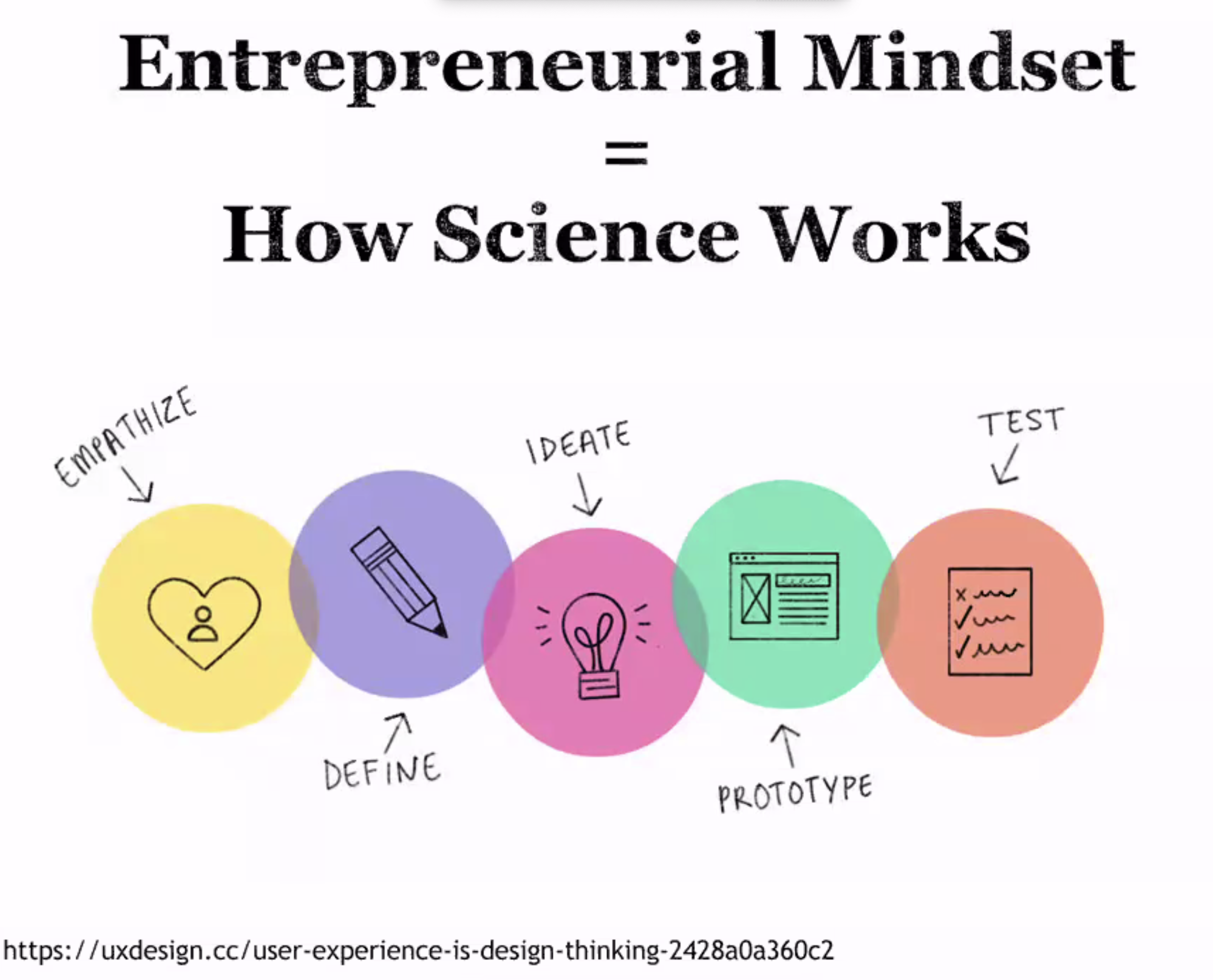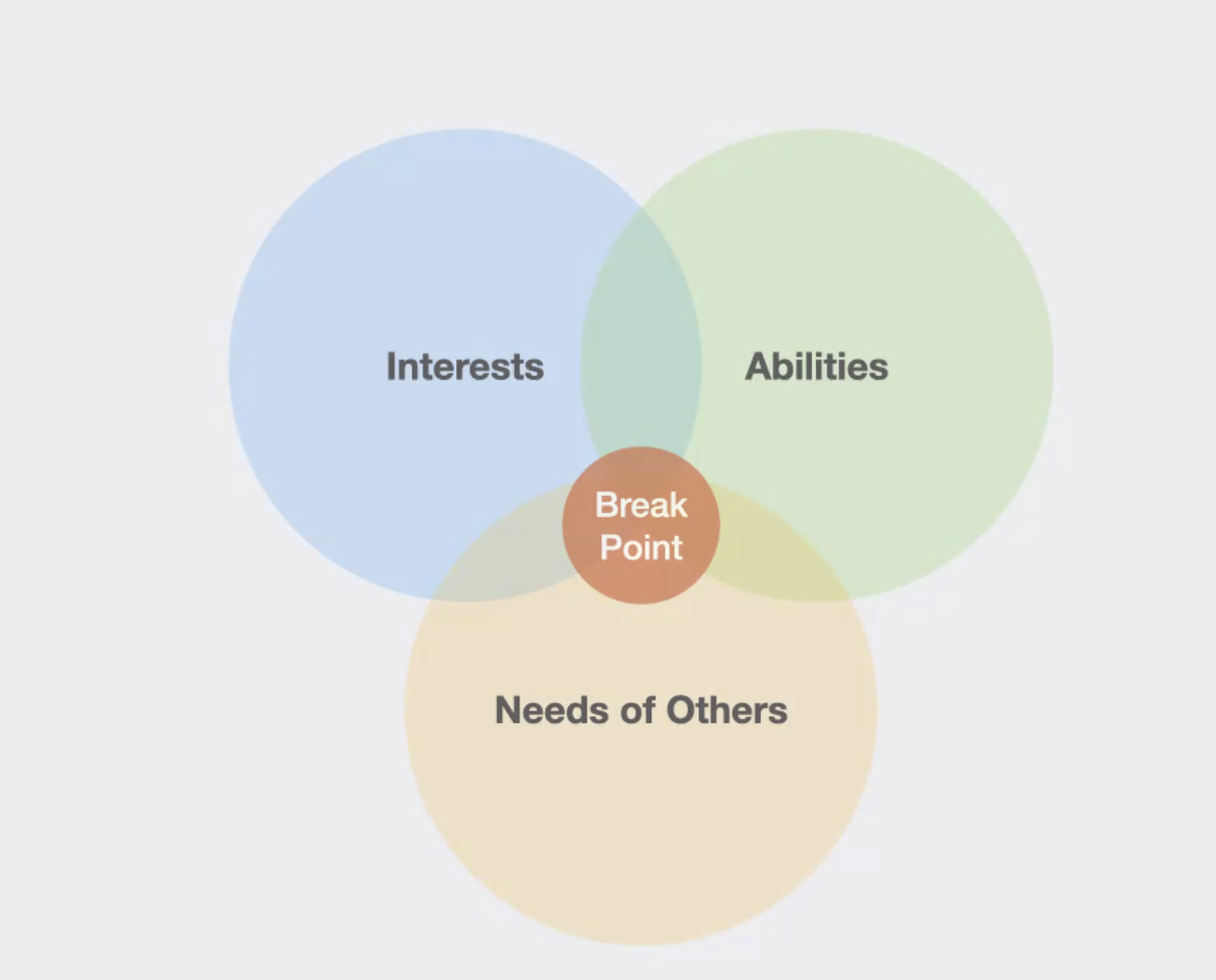A Five Step Strategy to an Entrepreneurial Mindset for Makers Day Two: make/SHIFT Virtual
Day 2 of NACCE’s make/SHIFT virtual explored the real power of a makerspace and entrepreneurial mindset. While applicable in different contexts, the discussion was particularly helpful for educators, faculty, staff, and administrators looking for creative ways to integrate the entrepreneurial mindset into their teaching and pedagogy. If you are trying to embrace the maker/entrepreneurial mindset to transform your institutions through entrepreneurship education, follow the five-step strategy below to expand and embrace the entrepreneurial maker mindset in communities.
 Design thinking runs parallel to the scientific method. We all know that entrepreneurship and making are an art and a science, but did you know that the design-thinking cognitive process follows the same steps as the scientific method? If you missed hearing about how a biotechnology lesson in fermentation is similar to entrepreneurial mindset learning, check out the make/SHIFT video series, coming soon.
Design thinking runs parallel to the scientific method. We all know that entrepreneurship and making are an art and a science, but did you know that the design-thinking cognitive process follows the same steps as the scientific method? If you missed hearing about how a biotechnology lesson in fermentation is similar to entrepreneurial mindset learning, check out the make/SHIFT video series, coming soon.
 Think about the entrepreneurship mindset as external serving vs. internally focused. By solving problems for others, we create value and empower ourselves. Guiding students through the entrepreneurial discovery process allows us to share with them a special brand of magic that results when interest, ability, and service to others collide. Incorporating service to others builds a strong source of motivation and enables students to build empathy while relating to their own experience.
Think about the entrepreneurship mindset as external serving vs. internally focused. By solving problems for others, we create value and empower ourselves. Guiding students through the entrepreneurial discovery process allows us to share with them a special brand of magic that results when interest, ability, and service to others collide. Incorporating service to others builds a strong source of motivation and enables students to build empathy while relating to their own experience.
Iterate, and develop a maker mindset.
Iteration is the repetition of a process in order to generate a series of outcomes intended to either move one closer to a desired result or meet a specific condition. Makers often find themselves in iteration mode, coming together in a common space to collaborate and create new products/services. Imagine the power they have collectively when they have built a maker mindset of resilience, optimism, courage, risk-taking, and failing forward again and again. Celebrating our students with small wins for each successful iteration fosters the maker mindset and fuels learning by doing.
Makerspace collaboration will fuel the future of workforce development.
When students interact within a makerspace, they are given an outlet for creativity and innovation. The more they explore, the more skill they develop. Inquiry/project-based learning serves as a catalyst for students who may evolve into entrepreneurs or inventors. They recognize quickly that the faster they learn to fail and regroup, the faster they are able to move on to the next strategy. This builds agility, which is valuable to any team, and prepares them for the workforce of the future.
The power of this engagement lies in collaborating with business and industry and preparing students to engage in real-time critical thinking and problem-solving, cross-network collaboration and learning by influence, initiative, effective communication, and data analysis while encouraging curiosity, imagination, and entrepreneurship.
Develop self-efficacy through making.
Educators are faced with preparing students for careers that are ever-changing and evolving, or risk being obsolete in years to come. Through making, students gain confidence when they can create and witness a tangible result of their effort. This develops self-efficacy, empowering learners to execute and perform when faced with a challenge. Makerspaces encourage creativity, innovation, problem solving and facilitate both self-directed and peer-to-peer learning, creating a safe place for students to congregate, collaborate and develop an entrepreneurial mindset.
Embracing makerspaces as more than a place where you might find a 3D printer allows us to create a sense of belonging, cultivate curiosity and creativity, serve local communities and infuse life into local economies. For more information and a reading list endorsed by make/SHIFT virtual presenters, visit the NACCE Making Center of Practice.
A special thank you to Day Two speakers: Heather Rissler, North Iowa Area Community College; Gary Schoeniger, Entrepreneurial Learning Initiative; Erin Lanigan, GIZMO CdA at North Idaho College; Steve Meyer, Fox Valley Technical College; Toi Hershman, EntreEd; and Kim Freeze, Rogue Community College.
